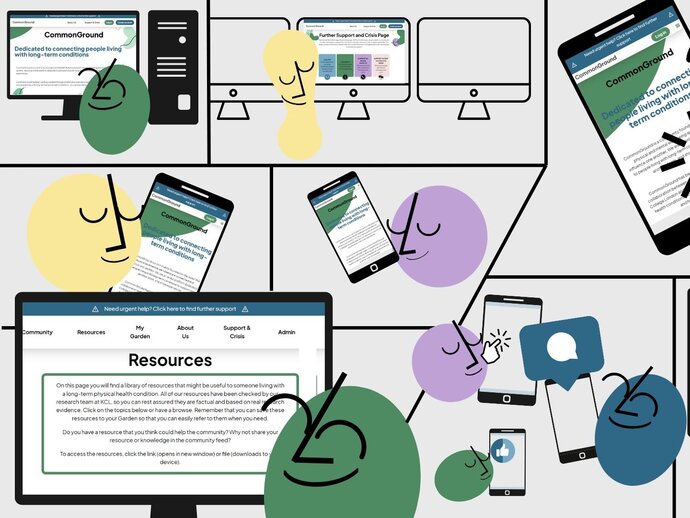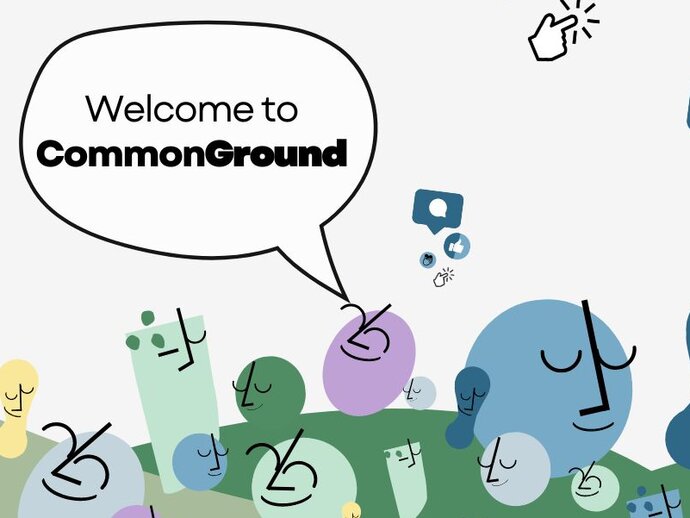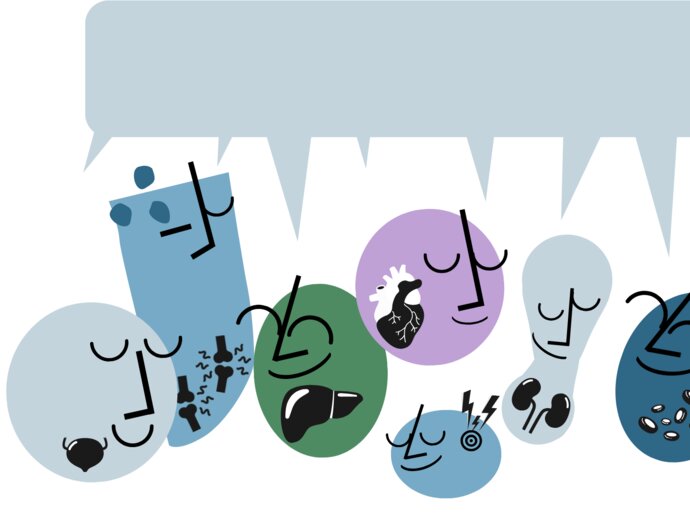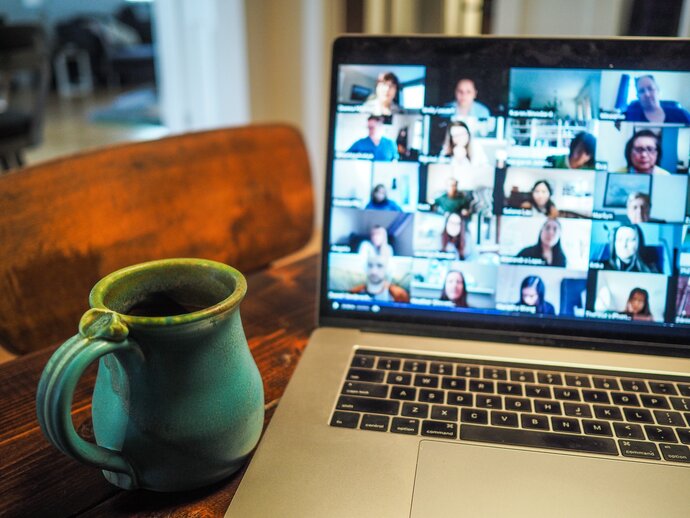Insights from our first CommonGround trial: engagement, feedback, and the future
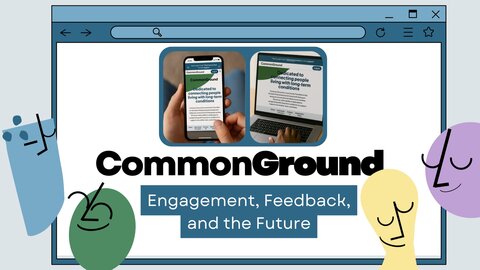
In our most recent blog post, our team shared their reflections on running the CommonGround research study. In this blog we want to share the official findings from our research study. The research was focused on testing out CommonGround, a new online peer support platform that allows people living with any long-term physical health condition to connect with others to share and provide support. The idea is that people will be able to give and receive emotional support and advice based on their lived experiences, which may help them manage their mental and physical wellbeing better. Before we can make CommonGround more widely available, for instance through the NHS, we must conduct research to understand what people think about CommonGround, whether they want to use it, whether it is effective in improving people’s mental health. Our recent research study was the first step in answering some of these questions.
In particular, we were interested in finding out:
- Is it possible to get people with long-term health conditions who may be at risk of developing depression to sign-up to take part in the CommonGround research study?
- Is it possible to get the people who take part in the study to complete questionnaires before and after they have had access to CommonGround? These questionnaires are important because they help our team to understand peoples mental and physical wellbeing at different points in time.
- What do people think about CommonGround? Is it a space that they would like to use to access support from their peers and information on how to manage their wellbeing? How could it be improved?
In order to answer these questions, we recruited people with long-term health conditions who may be at risk of developing depression to take part in our research study. Once enrolled in the research, participants were randomly allocated to either the CommonGround intervention group or the control group. The CommonGround group were given access to the peer support platform for three months and could use it as they wished. They had access to an anonymous peer forum where they could post, react to, and comment on posts, alongside a resources page filled with evidenced-based self-help information on various topics relevant to managing life with a long-term condition. The control group were sent emails containing links to the mental health information hosted on the NHS webpages. We asked participants to complete questionnaires at the beginning, middle, and end of the three-month period. We also interviewed some of our participants to delve deeper into their opinions of CommonGround, and of taking part in the research trial more generally.
So, what were our findings? And what do the findings mean?
[Question 1] Is it possible to get people with long-term health conditions who may be at risk of developing depression to sign-up to take part in the CommonGround research study?
Yes! We successfully recruited people for the research study. Most people found out about the study through charity advertisements or other online adverts. The people who signed up were relatively diverse in terms of their age, ethnicity, gender, and the long-term condition(s) that they were living with.
The fact that people were interested in signing up to the research means that it will be possible to get people to sign up to future research studies. In future research studies, we will need more people to take part, and so we will look to expand the routes that we recruit people through. As many people signed up after seeing the study advertised by a charity, we will partner with more charities to spread the word further. We also know that it is important that people hear about research studies and mental health support through avenues that they trust, so we’re looking into working more closely with GPs and clinics to help us reach those who might benefit most.
[Question 2] Is it possible to get the people who take part to complete questionnaires before and after they have had access to CommonGround or been part of our control group?
Around nine out of ten people who took part in the research study completed the questionnaires after they had had access to CommonGround or taken part in the control condition. This is a great sign for our future research, where we will be wanting to answer questions about the impact that using CommonGround has on someone’s mental wellbeing and physical health. One way that we understand what this impact is by getting people to answer various questionnaires.
[Question 3] What do people think about CommonGround?
Most of the participants liked the idea of the CommonGround community being a space to connect with other people ‘like me’ and seek support and share information. However, many people felt that more time was needed for the community to develop properly, and for people to organically form meaningful social relationships. It was strongly felt that these genuine social relationships that are the essence of peer support cannot be rushed. As CommonGround was only open for three months, some people also felt that they did not have the time or space to engage with it properly: sometimes other life events happened that meant they were busy, they felt they were doing well and did not need this type of support at that time or forgot about it. Quite a few participants mentioned that CommonGround could be most helpful when someone has been recently diagnosed and has lots of questions, or if someone is having a hard time and in need of emotional support. This means that in future studies about CommonGround, it will be important to have the community open for longer, to provide people with more opportunities to engage with it and to support organic community growth.
In general, people liked the look and feel of CommonGround and found it generally easy to use. Some people had difficulties in navigating between the different pages of the platform and wanted to see improvements in navigation. Many people suggested that creating a mobile application would be beneficial, as it would make login easier, improve accessibility, and could allow notifications to come directly to their phone that would remind them to login. Many people told us that they found the two-step security process at login annoying – it often put them off popping into the community briefly to see what was happening. These findings shows that there are numerous different areas where CommonGround could be improved to make it easier to use, and more aligned with what people with long-term health conditions want and need. Research does suggest that people engage more with ‘app’ versions of mental health interventions than those hosted on websites, and so this is something that our team will explore doing. As with all the development work so far for CommonGround, we will continue to work with our panel of people with lived experience to decide exactly what a CommonGround ‘app’ should be like.
Overall, we found that the level of activity on the community forum was quite low. There were small numbers of comments and posts created, and in general, people only logged in a handful of times. For some this was because they had not had the chance to engage properly and did not have time to create posts. For other people, they had not created posts because they were worried that their post would go unanswered or they needed to build up some confidence before posting for the first time. These findings tell us that we also need to consider how to improve the sense of community and the engagement on the forum, to make it more vibrant and social. This might involve prompting people to engage in different ways and having the CommonGround community open for a longer period of time.
The next steps.
Many people living with long-term health conditions are also experiencing low mood, which can put them at risk of developing more serious depression. Unfortunately, there are not enough low-cost, easily accessible mental health support options available. That is why we tested CommonGround, a new online peer support platform designed for people with any long-term condition and mild depression symptoms. We found that people were interested in taking part in our research study, and that doing a similar, larger research study will be possible. This study showed that CommonGround has real potential but also highlighted ways it can be improved to better meet people’s needs. We will take all this feedback into the next stage, working closely with people who live with long-term conditions to co-design the future version of the platform and design the next study that we need to conduct.
A thank you to our participants
We want to extend a heartfelt thank you to all the people who took part in our research study. Your time, dedication, and openness in participating in the interventions, questionnaires, and interviews have been invaluable. Without participants like you, our research would not be possible. Your contributions are helping us make a real difference in understanding and improving online mental health support for people living with long-term physical health conditions.
